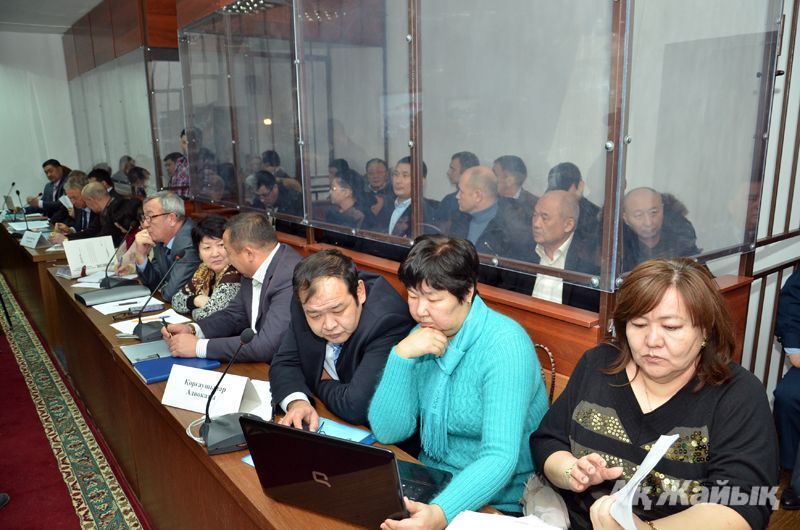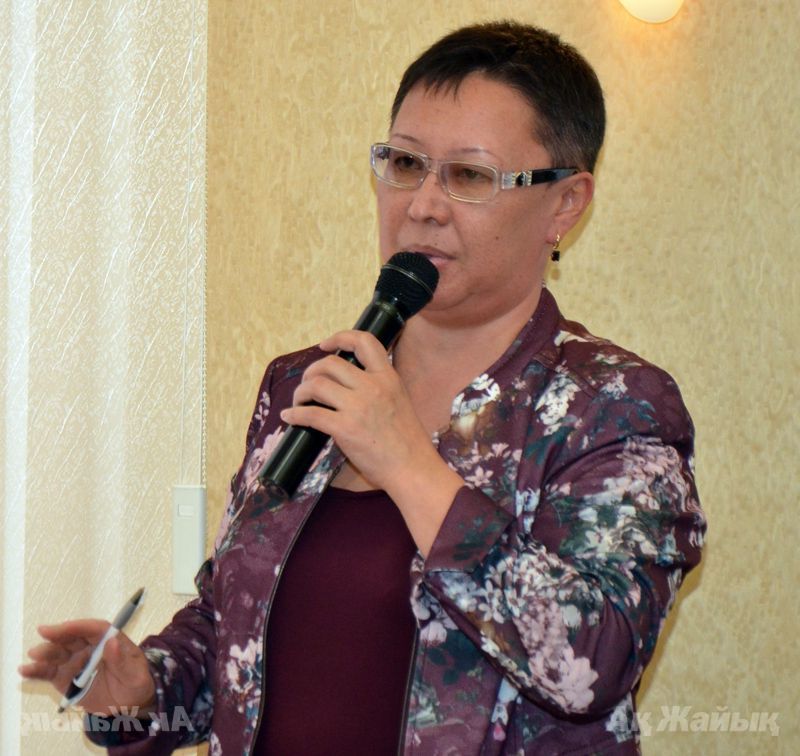By Saule Tasboulatova
 On February 24, Deputy Governor of Atyrau Oblast Aigul Azhgalieva was summoned to court as a witness of “Privatization” block. She was appointed to this position in 2010 (since 2005 she worked as the head of economy and budget planning department).
On February 24, Deputy Governor of Atyrau Oblast Aigul Azhgalieva was summoned to court as a witness of “Privatization” block. She was appointed to this position in 2010 (since 2005 she worked as the head of economy and budget planning department).
Where did all TCO’s emissions penalty go?
The issue of emissions penalty in the amount of 37 billion tenge paid by TCO in 2007 was brought up at the court. In particular, the lawyers were interested why the money was left in the local budget, instead of going to the republican budget, and what the money was spent on.
The witness explained that at that time the issue was disputable and for about a year they were in correspondence with the Ministry of Finance. Eventually the money stayed in the local budget. According to Azhgaliyeva, out of 37 billion tenge - 19 billion were allocated for construction of bridges and 14 billion were spent on the construction of gas pipelines and water supply line to Makat, the rest of the money was spent on “miscellaneous” items.
Illegal Privatization
 To recall, altogether 12 facilities of municipal property were illegally privatized within the frame of this criminal case. The “biggest” ones were voiced by the RoK General Prosecutor Askhat Daulbaev at the meeting of Atyrau Oblast core group on August 31, 2012.
To recall, altogether 12 facilities of municipal property were illegally privatized within the frame of this criminal case. The “biggest” ones were voiced by the RoK General Prosecutor Askhat Daulbaev at the meeting of Atyrau Oblast core group on August 31, 2012.
The gas pipelines of OblTransGas making profit up to 1 million dollars a year were sold to ZhaikGasSbyt LLP for 650 million tenge, although 9.8 billion tenge were spent from the state budget for their construction and refurbishment.
The section of Atyrau cultural center (the “Appendix”), namely, its restaurant and operations facility was sold to CaspyStroiEkstra LLP for 17 million tenge versus its market price of 164 million tenge.
Atyrau - Makat water supply line with the balance cost of 373 million tenge was sold to MunaiKurylysService LLP for 4.9 million tenge.
The office building of Atyrau-Akparat public state company, its printing house and equipment were also sold at undervalued prices. Moreover, the new owners leased them to editorial offices of regional newspapers that were based there. The annual revenues received from renting made 120 million tenge. The payments were made from the state budget.
As it was said at the court, currently all facilities of municipal property have been returned back to the state. The issue of returning money to the companies that purchased them is being resolved in a judicial order.
 В Атырау -10
В Атырау -10